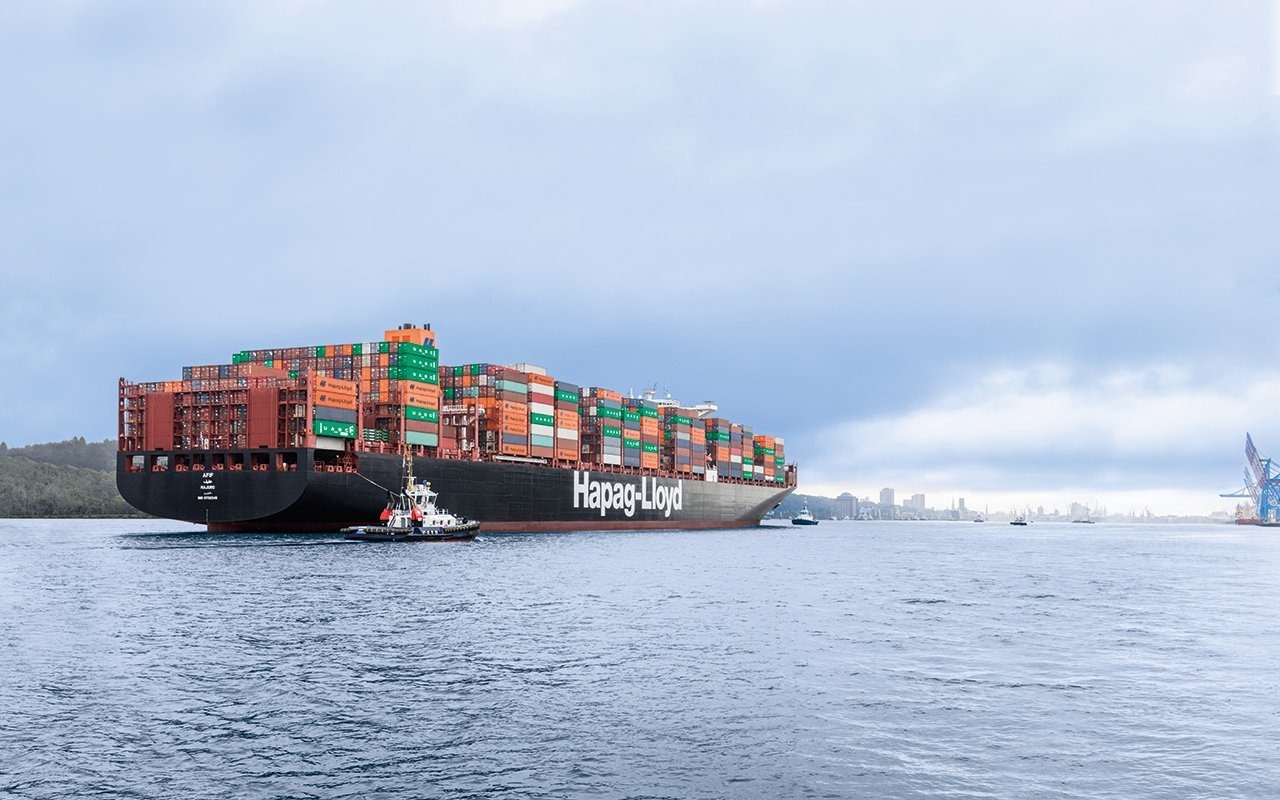
The shipping companies, which are a key vector for globalized economies, find themselves in a complex situation in the face of the coronavirus pandemic. Supply reduction is being used as a weapon to maintain freight rates at the moment but risks holding back recovery, particularly since it will not be able to withstand the inevitable introduction of new capacity.
What will be container shipping world remember about the current crisis? Let us try to find some keys to help us understand the macroeconomics of the situation in this period of confusion and uncertainty we are all going through, irrespective, for once, of our culture, race, age, condition and convictions.
The paralysis of the world economy is weakening the position of the shipping companies, most of which came into 2020 in a fragile financial state. Several factors have come together to halt the healthy functioning of the world container shipping market. And, sad to say, shippers and carriers have sometime come up with the wrong solutions.
1/ Overreaction from some major shippers
Major retailers in Europe and the United States are cancelling their orders on a massive scale one after the other even though this post-Chinese New Year period is generally one of high activity. According to our sources, the reduction could be as much as 40% in some cases in the first quarter, as compared with the same period in 2019. Buyers at the major retail groups argue that their warehouses are full, their physical sale outlets closed and their online sales much reduced, except for foodstuffs.
Of course, this attitude is comprehensible in part but it is doubtless excessive. And this over-reaction is going to have a major impact on the functioning of the container shipping market and, therefore, in the longer term, on the recovery.
2/ Heavily reduced shipping services
The collapse of activity in a sector which is a major source of cargo for the shipping industry has caused a chain reaction. Order cancellations translate into cancellations of reservations which result in shipping companies dropping more sailings at the last minute from services which have already been pared down. In this way, the orders cancelled by the retail sector at the end of March will lead to large-scale blanking of sailings from Asia in April. The result will be that European ports will be without ships between May 15 and June 15, a period which will probably be crucial for the revival of western economies.
By way of example, THE Alliance has announced that it will be sending just two ships from Asia to the Western Mediterranean in May, compared to four or five usually. It is hard to imagine a recovery taking place in these conditions!
One can better understand China's eagerness to restart and rapidly expand Silk Road rail services. Services are already full for the next three weeks and, unusually, in both directions.
3/ Fragile finances
Most shipping companies came into 2020 under-capitalised and with tight cashflow situations. Some were also weighed down by debts which are frightening the international ratings agencies. As a result, bank pools are little inclined to invest in the sector at the moment.
Although many states have announced massive injections of public funds into their economies, the spectre of a long and deeper than expected recession than is now a serious prospect. This situation has raised fears of a new Hanjin-style situation. Despite being the seventh biggest carrier worldwide, the Korean company was declared bankrupt in February 2017. This tragedy is still very much alive in the memories of all shipping operators.
To safeguard their financial situations, the shipping companies are using the only arm in their possession. They are collectively making massive reductions in capacity so as to maintain rate levels. They have had some success, moreover. Freight rates in the first quarter of 2020 were 15-20% higher than in the first three months of 2019.
But this response could turn out to be highly destructive for our economies, which, if they are to survive the crisis, need flexibility and a high degree of capillarity to underpin the efforts made in the landside logistics chain. As Europe waits desperately for empty and unplugged reefer containers to return from Asia, slowing down ships to reduce service capacity is a complete nonsense and gives a totally wrong signal to the market.
4/ Fuel price effect not entirely favorable
At the same time, there is another factor, which, at first sight and totally unexpectedly, is giving shipping companies some respite. Fuel prices have collapsed. The "clean" fuel imposed by IMO 2020 is today changing hands on the open markets in Rotterdam and Singapore at lower prices than those of the "dirty" fuel which most companies were still using until a few months ago. These all-time low prices have led to immediate good news on operating margins but without redressing low cargo volumes. And the respite they have brought may not last long. Shippers are rightly going to refuse to pay "clean fuel" surcharges and perhaps even ask to be credited with negative surcharges. The shipping companies have started to suspend the surcharges, moreover.
Conversely, while the current situation has turned out to be favourable for companies which have opted to buy very low sulphur fuel oil (VLSFO), it can be detrimental to those which decided to fit their ships with "scrubbers". This is the case for MSC but for others, too. These companies are suffering a double penalty. They have had to put up with their ships immobilised for very long periods, notably when the work was due to be carried out by Chinese yards which had stopped work. And today, the heavy investment that scrubbers represent has been made completely irrelevant by the very low VLSFO prices. Many companies, therefore, are trying to cancel their scrubber contracts.
In addition, there is great uncertainty regarding the acceptability of open-loop scrubbers, which represent 90% of all scrubbers, once the situation has returned to normal. The open-loop system enables operators to respect the legislation concerning the emission of sulphur particles in the air but, instead, captures them in water which is then released into the sea. Several countries, including China, have already let it be known that ships using this system will not be welcome in their territorial waters.
5/ The threat of major overcapacity
In addition to all these factors, there is another major question. How are the container shipping companies going to cope with the influx of capacity which is on its way?
According to estimates from Alphaliner, quoted by Container News, the number of container ships waiting for scrubber retrofitting stood at 111 on March 5. These ships represented a combined capacity of 1.02 million TEU, which is to say 8.8% of worldwide capacity currently in service. If we suppose that 50% of these contracts will be torn up for the reasons given above, we can imagine that a considerable number of ships are nevertheless going to be brought back into operation shortly on regular lines. These ships have already gone over their "inactivity" quotas while they were waiting to go into the yards. It is estimated that the fixed costs of a ship at anchor are 30%-40% less than those of a ship in service with a load factor of 85-90%.
In addition, several shipping companies are set to take delivery of giant new container ships this spring.
Conclusion
The shipping companies need to urgently change their China-centred "software", which always prioritizes the so-called "dominant" Asia-Europe and Asia-US leg. This old operating dogma is no longer suited to the current situation. To restart quickly, activity will need to have a varied supply offer, capillarity, fluidity and flexibility.
To serve our economies which are now on life support, we will need smaller faster ships, positioned in Europe and fitted with reefer equipment. Failure to take advantage of the windfall effect of cheap fuel to get the economy moving again risks contributing to the missed opportunity that we are all afraid of.
In the current crisis, the shipping and port industry has shown great resilience, thanks particularly to unprecedented coordination between the federations representing the different professions. Operations have been saved and seafarer health has been respected. Digitalized, paperless administrative procedures have enabled activity to continue.
The industry has shown its ability to mobilise and adapt in the face of emergency. It is now or never the time to carry out major structural change.

Jérôme de Ricqlès
Shipping expert
Our latest articles
-
Subscriber 3 min 24/02/2026Lire l'article -
Hapag-Lloyd - Zim: a shipping deal with geostrategic implications
Lire l'article -
European road freight: the spot market is stalling
Lire l'article


